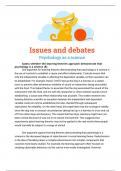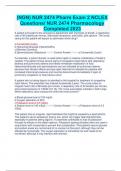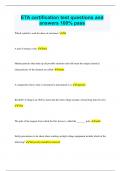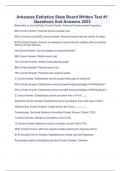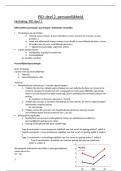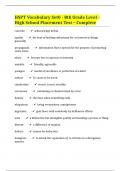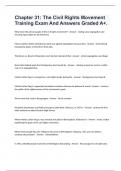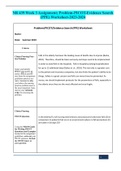Tentamen (uitwerkingen)
issues and debates in psychology 43 extended responses questions and -30 essays
- Vak
- Instelling
43 extended response questions on 10 issues and debates in psychology, and around 30 essays for them. PEEL structure and conclusions for top band marks. all questions from past papers for each issue and debate included
[Meer zien]
